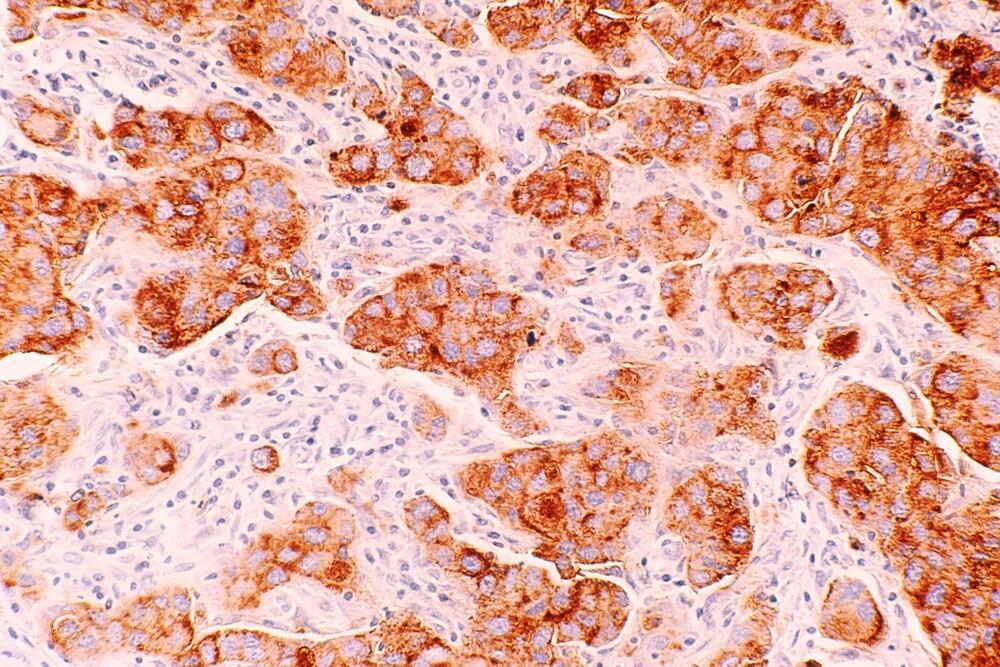Triple-negative breast cancer accounts for approximately 15% of all breast cancer cases. Patients with this subtype typically have poorer outcomes compared to other breast cancers, suggesting the need for improved treatments. One new therapy being investigated at Moffitt Cancer Center involves oncolytic viruses, which infect and kill the cancer cells. In a new article published in Nature Medicine, the researchers, led by Hatem Soliman, M.D., share results from a phase 2 clinical trial of the oncolytic virus talimogene laherparepvec (TVEC) combined with standard chemotherapy in patients with early stage triple-negative breast cancer.
Patients with triple-negative breast cancer lack expression of the estrogen and progesterone receptors and have little to no expression of the protein HER2. As a result, hormone therapy and medicines that target HER2 protein receptors are not effective against this type of cancer. Standard therapy for early stage triple-negative breast cancer has been cytotoxic chemotherapy with the recent addition of pembrolizumab. However, this approach is associated with significant side effects. Many studies have shown that patients who have higher levels of immune cells within their tumors tend to have better responses to therapy. These observations suggest that agents that stimulate the immune system may be beneficial in triple-negative breast cancer.
TVEC is a modified herpes simplex 1 virus that includes coding sequences for the protein GM-CSF, which can stimulate the immune system. It is injected directly into the tumor and undergoes replication within the tumor cells, resulting in the breakdown of the tumor cell and production of tumor derived antigens. Immune cells can recognize the antigens, infiltrate the tumor and target the cancer cells for destruction. In addition, GM-CSF made by the virus acts as a beacon to help recruit immune cells to the tumor.
